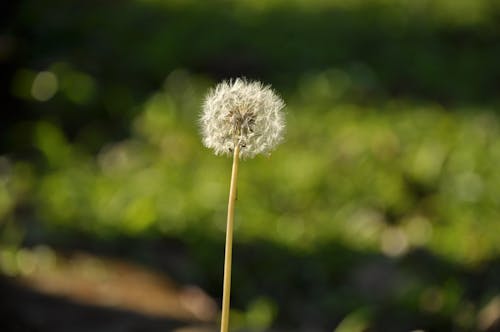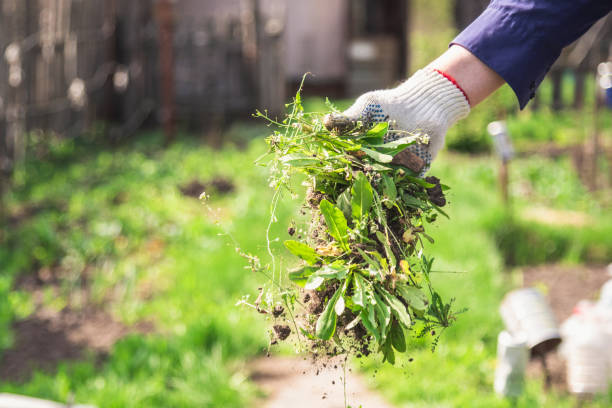Trying to grow a nutritious garden, a luscious lawn, or luxurious flower beds? No matter what your plant goals are, weeds can make it incredibly difficult to reach those goals. Weeds take over our other plants, grow rapidly, and become very time-consuming to get rid of. However, there are methods out there that can help you prevent those weeds from coming back year after year. In this blog, learn about how weeds grow and end up in your yard and the best ways to prevent them from sticking around.
How Weeds Grow And How To Prevent Them
Weed Growth: 
It’s safe to say we’ve all seen or dealt with those pesky, unwanted plants that seemingly sprout out of thin air and take over our beautiful flower beds or gardens. Yes, we are talking about weeds. The common weeds that you most often see around your flowers and garden are crabgrass and lamb’s quarter. You might wonder how weeds grow and how they come back every year regardless of any preventative measures you may have taken, the answer is their genetics.
Crabgrass and lamb’s quarter have competitive genetics that allows their rapid growth and reproduction. When actively growing, these weeds are producing thousands of seeds and disperse them throughout the season. These seeds are then able to lay dormant in the solid for years before germinating. Weeds will then sprout just about anywhere there is soil, sunlight, and room to grow. Other weed types such as dandelions, ivy, purslane, thistle, and ragweed can require the most effort to remove from your garden. These weeds grow by seed and root, meaning they are able to embed themselves deeper into the soil.
Weed Prevention:
While weeds are persistent plants, there are ways to prevent them. On a general note, creating healthy gardening habits and a lush lawn will continuously prevent weed growth over time.
1) Suppress weeds with mulch:
Mulch is a great way to tidy up your flower beds and provide your desired plants with rich soil. Mulch will retain soil moisture and keep soil temperatures consistent, creating a healthy environment for your flowers. Another benefit of mulch is that it helps prevent weeds. A few-inch layer of mulch can deprive the weeds of the sunlight that they need to grow.
2) Pull weeds: 
The daunting task of pulling weeds is another effective way to prevent weeds from returning. While it may leave your knees and back sore, pulling weeds could be worth it in the end. This prevention method allows you to pull the weed from the root ensuring that all parts of the plant have been removed from the soil. For easier removal, pull weeds after rain.
3) Don’t let them sprout:
Stay ahead of weed growth by stopping them at the source, the seeds. Use a pre-emergent herbicide on your lawn and other necessary areas in spring or summer to prevent the growth of weeds. By stopping the seeds from sprouting, they never grow and you won’t have to pull the weeds in the future.
4) Cover your garden beds:
Using a plastic sheathing or landscape fabric will help keep weeds down under the soil for a few seasons. The covering can also help with soil erosion, however, it will keep other necessary organic matter from the soil so be sure to treat it with appropriate fertilizers.
5) Spot treatment:
We can try many preventative measures but sometimes weeds still sneak through the cracks, when this happens a post-emergent spot treatment can be helpful. Spray the treatment only on the unwanted plant, certain herbicides will kill any plant on contact so be careful where you are spraying the product. For more organic methods, look into using vinegar and hot water for weeds such as dandelions.
End note:
Overall, weeds can be a painful, seasonal task taking up a lot of time and effort, but they don’t have to be. It’s important to know how weeds grow in order to determine a proper prevention method for your yard. If you have weeds such as the crabgrass mentioned, a less harsh method to rid your garden beds of the seeds would be useful. However, if you are dealing with root weeds such as dandelions, try out some of the harsher prevention methods to keep them out of your yard for longer. Need further help and consultation on your yard’s landscape? Please contact us at Eichenlaub for thoughtful solutions and services for your landscaping needs.









